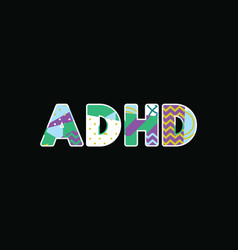Do you feel like your child is constantly in motion? Does he or she have a hard time focusing on tasks? If so, your child may be suffering from ADHD. Attention Deficit Hyperactivity Disorder can make it difficult for children to succeed in school and social settings. In this blog post, we will provide a questionnaire for parents that will help them determine whether their child has ADHD. We will also discuss the symptoms of ADHD and the treatments available.
Contents
What Is ADHD?

ADHD is a neurodevelopmental disorder that affects both children and adults. Symptoms include difficulty paying attention, impulsivity, and hyperactivity.
There are three types of ADHD: inattentive type, hyperactive-impulsive type, and combined type. The combined type is the most common, followed by the inattentive type. Girls are more likely to be diagnosed with the inattentive type while boys are more likely to be diagnosed with the combined or hyperactive-impulsive type.
While there is no one cause of ADHD, it is believed to be caused by a combination of genetic and environmental factors. Treatment typically involves medication, therapy, and/or educational interventions.
If you suspect your child may have ADHD, speak with your child’s doctor. They can administer a formal evaluation which may include a questionnaire, interview, and/or observation.
The ADHD Questionnaire for Parents is one tool that may be used to help diagnose ADHD. This questionnaire is not a diagnostic tool on its own but can help give the doctor an idea of whether your child is displaying symptoms of ADHD.
How To Use The ADHD Questionnaire For Parents?
To use the questionnaire, simply answer each question with either “yes” or “no.” If you are unsure of an answer, feel free to ask your child’s teacher or another trusted adult for their input.
Once you have answered all questions, total up the number of “yes” answers. A score of 16 or higher indicates that your child may be suffering from ADHD and should be seen by a doctor for further evaluation.
- Do you have any concerns about your child’s behavior at school?
- Do you feel like your child is not completing their homework or chores?
- Is your child easily distracted or unable to focus on one task?
- Does your child have difficulty following instructions?
- Does your child fidget or squirm often, even when they are not supposed to be moving around?
- Is your child impulsive, meaning they act without thinking first?
- Do you feel like your child is always on the go, even when they should be resting or sleeping?
- Do you think that your child talks more than other children their age?
- Does your child have difficulty waiting their turn or taking turns?
- Do you think that your child interrupts others often?
If you answered “yes” to four or more questions, your child may be suffering from ADHD. Please consult a doctor for further evaluation.
Reasons To Use ADHD Questionnaire For Parents

There are many reasons to use an ADHD questionnaire for parents. Perhaps the most important reason is that it can help you decide if your child needs professional help. If you are concerned about your child’s behavior, an evaluation by a mental health professional can give you peace of mind or provide you with direction on how to best help your child.
Another reason to use an ADHD questionnaire for parents is that it can provide valuable information to teachers and other professionals who work with your child. By better understanding your child’s symptoms, they can be more attuned to his or her needs and better equipped to support him or her in the classroom or elsewhere.
The final reason to use an ADHD questionnaire for parents is that it can help you track your child’s progress over time. By regularly monitoring symptoms and how well your child is functioning, you can get a better sense of whether or not treatments are effective.
These reasons of course are not exhaustive. But they should give you a sense of why an ADHD questionnaire for parents can be a useful tool, whether you ultimately decide to seek professional help for your child or not. While there is no one perfect way to determine whether or not a child has ADHD, questionnaires can help give you a place to start.
Tips To Keep In Mind While Using ADHD Questionnaire For Parents

If you are thinking of using an ADHD questionnaire for parents, there are a few things to keep in mind. First, it is important to realize that no single test can diagnose ADHD. In other words, the results of a questionnaire should never be used as the sole basis for making decisions about your child’s mental health.
Second, different questionnaires can vary in their accuracy. Some may be more accurate than others in identifying children who truly have ADHD while some may tend to overdiagnose the condition. It is important to do your research and talk to your child’s doctor before administering any type of test.
Third, it can be helpful to have your child’s teacher or another professional complete the questionnaire as well. This can give you a more well-rounded picture of how your child is functioning and whether there are any areas of concern.
Fourth, keep in mind that symptoms of ADHD can look different from one child to the next. Some children with ADHD may be very hyperactive while others may not be. Some may have difficulty paying attention while others may seem to daydream a lot. It is important to remember that there is no one right way for a child with ADHD to behave.
Fifth, finally, if you do decide to use an ADHD questionnaire for parents, make sure to follow up with a mental health professional if you have any concerns. The questionnaire is only meant to be a starting point in the evaluation process. A professional can provide you with a more complete picture of your child’s symptoms and how best to address them.
Conclusion
ADHD is a real and serious condition that can have a profound effect on a child’s life. If you think your child may be suffering from ADHD, it is important to seek professional help. This questionnaire is a starting point, but only a professional can give you a definite diagnosis.
If you answered yes to more than half of the questions on this checklist, it’s worth considering whether your child might have ADHD and discussing your concerns with a doctor or other mental health professional. Remember, however, that this isn’t meant to be used as a diagnostic tool – only a licensed professional can give you an official diagnosis.
Hope this article was of help to you! If you are suffering from mental health disorders, you may seek help from Therapy Mantra. We have a team of highly trained and experienced therapists who can provide you with the tools and skills necessary for overcoming mental health disorders. Contact us today to schedule an online therapy or download our free Android or iOS app for more information.


